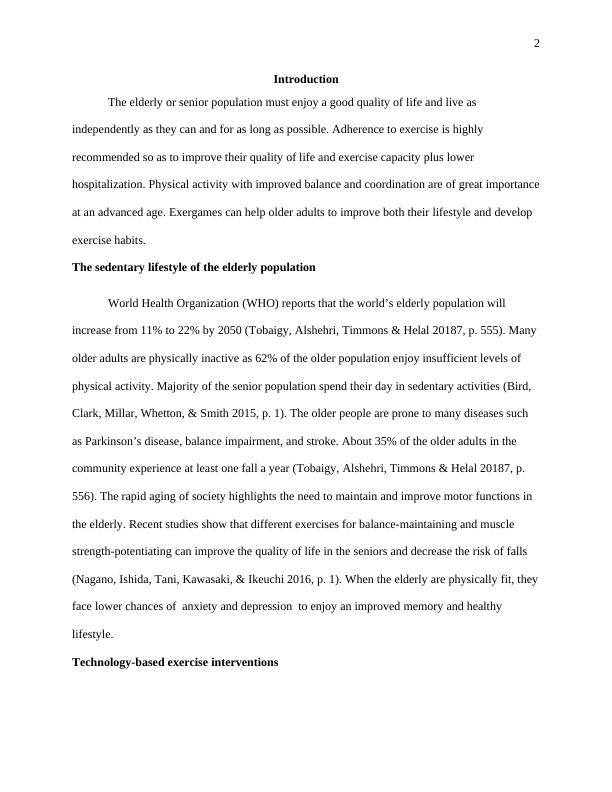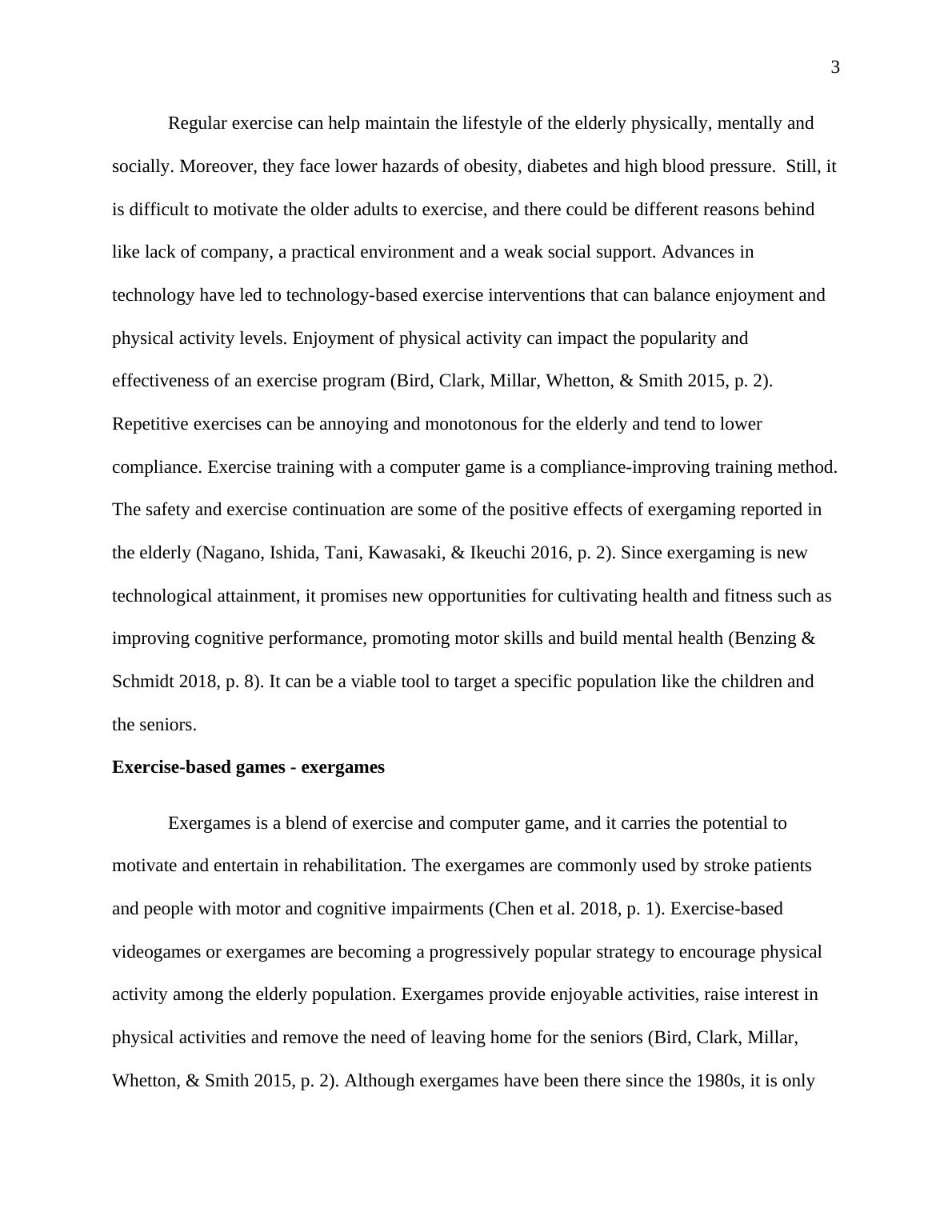User Centered Design for Exergames
Apply scholarly and evidence-based approaches to software requirements elicitation and specification. Analyse software context of use using a variety of models to identify user requirements.
9 Pages2630 Words98 Views
Added on 2023-01-13
About This Document
This article discusses the importance of user centered design in creating exergames for the elderly population. It explores the benefits of exergames in improving physical activity and quality of life for seniors. The article also provides guidelines for designing exergames specifically for the senior population.
User Centered Design for Exergames
Apply scholarly and evidence-based approaches to software requirements elicitation and specification. Analyse software context of use using a variety of models to identify user requirements.
Added on 2023-01-13
ShareRelated Documents
End of preview
Want to access all the pages? Upload your documents or become a member.



